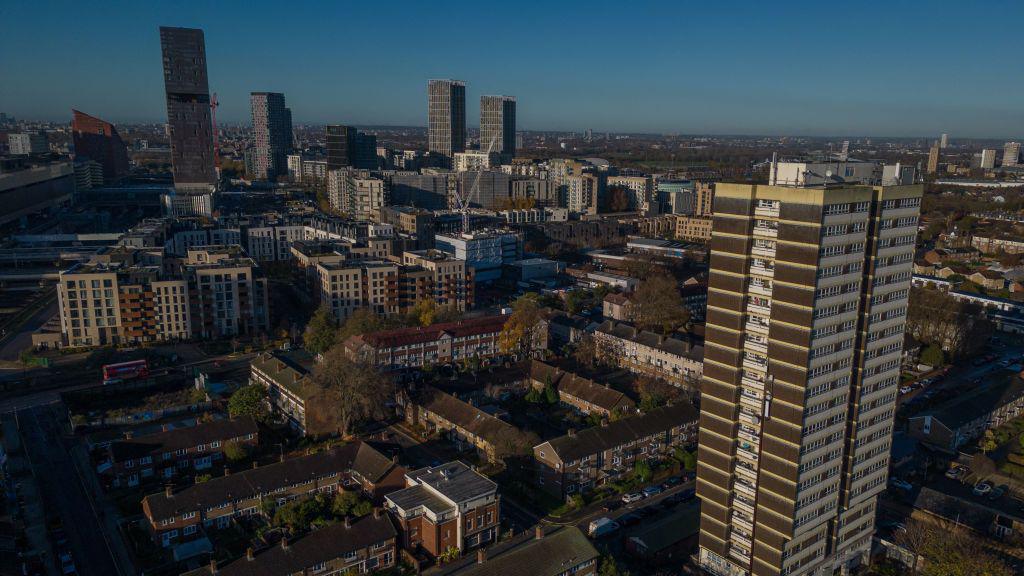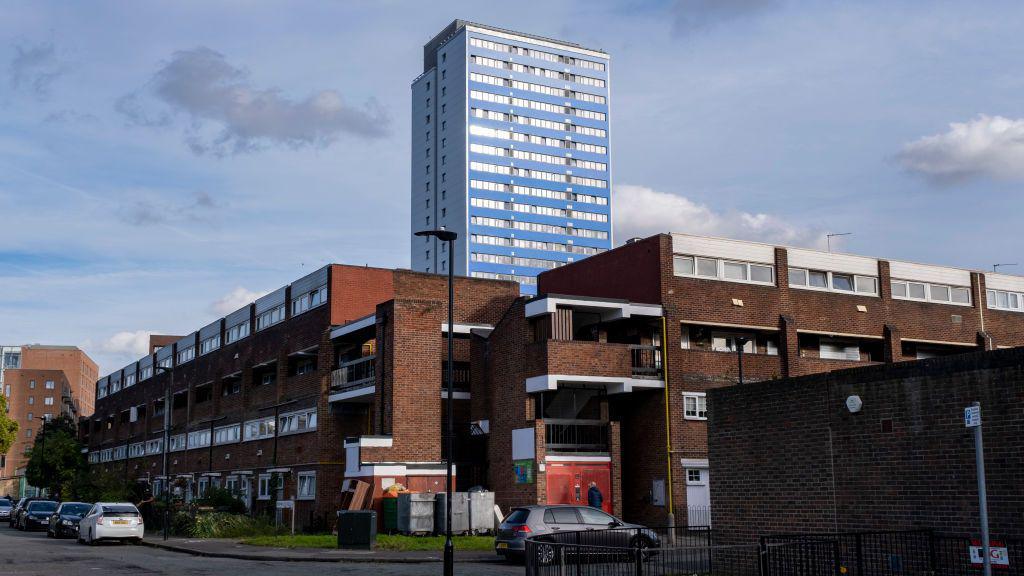Council warns it could go bust due to housing costs

Newham Council is more than £22m in deficit and said government assistance may "be required"
- Published
Newham Council says it could go bust due to increasing "challenges with temporary accommodation" (TA).
In a new review, the east London authority announced it was more than £22m in deficit and "some form of government assistance may also be required".
It comes as new data from London Councils suggested council spending on TA for homeless households rose by 25% between April 2023 and April 2024.
The Ministry of Housing, Communities and Local Government (MHCLG) said it would "take action" on the wider issue of homelessness and develop a "strategy".
In the Summer 2024 Finance Review, external released on Thursday, Newham Council said it was among those struggling with the cost of TA.
It said spending in this area was projected to exceed £40m over the coming year, despite "allocating a further £18.5m" to the TA budget.
If costs do reach this level, the review said it would account for a third of its total spending, which when combined with the two-thirds of the budget spent on social care, "would leave very little resource for any other service".

London Councils said 29 of the 33 councils in the capital overspent on their homelessness budgets, by a collective total of £208m
It comes as London Councils’ latest survey of borough councils shows between April 2023 and April 2024 TA spending for homeless households rose by 25%.
The number of households living in temporary accommodation also increased, by 10%, to 60,959.
Of those households in TA, the number of families placed in B&Bs by boroughs has also grown by a quarter to 2,249 families.
The survey results suggest this is putting pressure on budgets too - with 29 of the 33 councils overspending on their homelessness budgets by a collective total of £208m in the 2023-24 financial year.
'Assistance may be required'
Zulfiqar Ali, Newham Council's lead member for finance and resources, said despite "many initiatives, prevention strategies and robust financial management, the challenges with TA remain and are forecast to grow significantly" due to "the growing number of people seeking help".
Mr Ali said the council was taking "as many actions as possible to ensure that we are able to continue delivering services for our residents" including cost-cutting, using reserves and selling assets.
However, he said "some form of government assistance may also be required" because the measures "won’t be enough".
"Past government policies and the inefficacies of the housing market in London and the UK have failed us," he added.
In the review, Mr Ali also alleged there were regional disparities in central government funding per household and the homelessness prevention grant "is not distributed accurately or fairly".
He used Wiltshire Council as an example, saying it received the equivalent of £8,604.26 per household compared to £1,816.82 per household in Newham.

A government spokesperson said: “We will take the action needed to tackle this issue and develop a long-term, cross-government strategy"
The council's cabinet is due to meet on Tuesday to discuss the budget issues.
Councils are required by law to produce a balanced budget and, if a council cannot balance its budget, its finance officer issues what is known as a Section 114 notice.
Local authorities cannot actually go “bankrupt”, but a Section 114 notice prevents the council from carrying out any new spending until it can balance its books.
It can mean councils then have to make cuts to non-statutory services to find savings.
An MHCLG spokesperson said: “Homelessness levels have sky-rocketed and too many families are living in temporary accommodation in our towns and cities, including London boroughs like Newham.
“We will take the action needed to tackle this issue and develop a long-term, cross-government strategy, working with mayors and councils to put Britain back on track to ending homelessness.”
Similar stories
Council to buy up housing for borough's homeless
- Published13 February 2024
Havering Council warns it could soon go bust
- Published24 January 2024
London councils spend £90m monthly on homelessness
- Published28 February 2024
Listen to the best of BBC Radio London on Sounds and follow BBC London on Facebook, external, X, external and Instagram, external. Send your story ideas to hello.bbclondon@bbc.co.uk, external